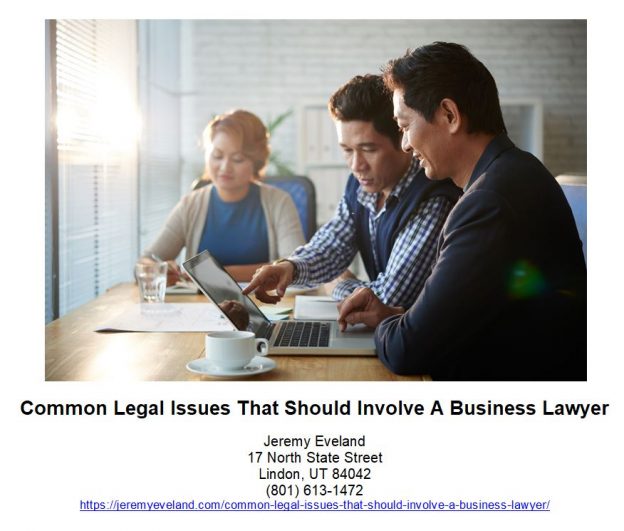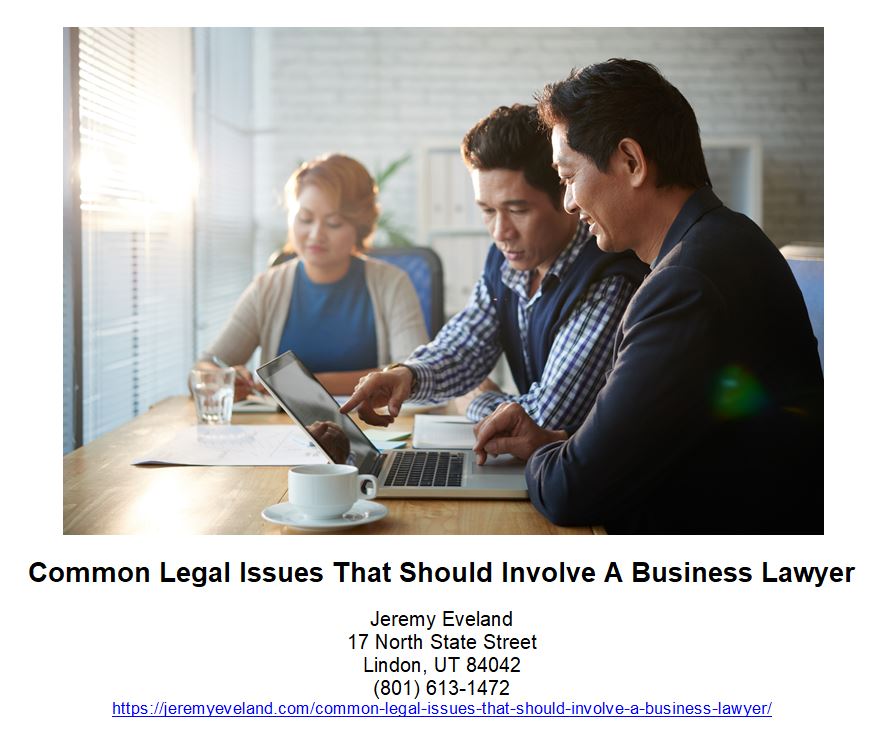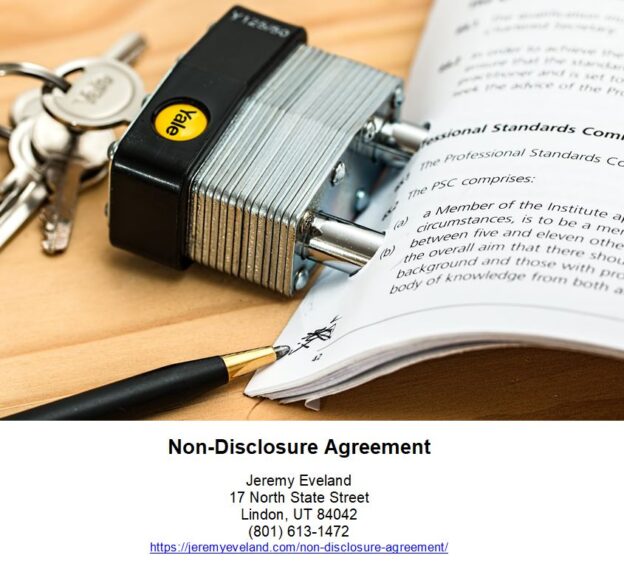If you have a small business or are planning to start one, then building a relationship with a small business attorney can be one of the best things you can do. Not only will a lawyer guide you into setting up your small business correctly, but will help guide you through all the different aspects of owning a small business. There are a lot of legal aspects to business that an owner may not have considered when starting one, so having access to a lawyer can have a lot of benefits.
Once you starting running a business, the world gets a lot more complicated. You’ll find yourself faced with a plethora of issues and decisions that most people never have to consider, and legal inconveniences may be an unfortunate side effect. Here are some such issues, along with considerations for dealing with them.
Resolving disputes in business.
This can be a contractual issue, a product issue, or even a liability issue that a lawyer will be best equipped to deal with for you.
How to set up your business to protect your assets in case of a lawsuit or other legal issue
Making sure all your bases are covered if you’re buying a business, dealing with becoming a franchise or even selling your business.
Business ownership is complicated enough without having to attend to all the details alone. Business attorneys know all the in’s and out’s of the legal system and understand the traps and pitfalls that small business owners have to deal with. Consulting with one during all phases of your business may seem like an unnecessary expense, but like having insurance, it’s an expense that is well worth it. Having the comfort in knowing you’re personally protected, that your business is protected and that you’re running your business properly is well worth every penny.
Owning a small business is no easy feat. Starting up your own company is a challenging thing to do, but is also one of the most rewarding. There are several obstacles that one must overcome to create a successful business.
Determining Which Type of Business Entity
Before you do anything, you need to determine how your business will be structured. There are several types of business structures you can choose from, each with its own advantages and disadvantages. Whichever structure you choose will affect your personal liability, tax obligations, ongoing business expenses, and more. Choosing the wrong entity type could result in costly fees or fines that may negatively impact your business. A few business structures to choose from include:
Limited Liability Company (LLC)
Corporation
Close Corporation
Sole Proprietorship
Partnership
A business lawyer can help you decide which structure to operate under. There are other resources you can use as well, that will help you determine which business model is best for you. However, nothing can truly replace the guidance from an experienced lawyer who can provide examples of where the liability protection shines, and where it lacks. Moreover, even though formation may seem simple, and these days many non-lawyers, including CPAs, are doing formation paperwork, only an attorney can really speak on the liability protections and consequences.
Obtaining Proper Licensing and Insurance
Licensing is one of the most common legal issues small businesses encounter. Make sure you’re in accordance with your local government’s requirements for business licensing. Otherwise, you will likely find yourself facing fees that could easily have been avoided. The cost of the license may vary depending on where you operate, but the need to have one remains constant throughout the country.
When it comes to obtaining business licenses and insurance, it is crucial that you obtain the proper documents and licenses for your company. Many business owners are unfamiliar with the government restrictions that are placed on business licensing. The cost and requirements for business licenses often vary by location making it difficult to determine which licenses are needed.
Getting the wrong licensing or failing to obtain proper insurance can be costly for a business to mend. A business lawyer can advise on what other protections you need for your business.
Contract Writing
Drafting and negotiating business contracts is challenging for someone who is unfamiliar with all the state laws, regulations, and guidelines that need to be considered. The need to create a legally binding business contract that works for your particular business is worth its weight in gold. This is where cookie-cutter contracts serve no real good and could lead to problems later on.
Similarly, negotiating a business contract can be quite tricky if you are less familiar with the terms and phrases being used. Having a poor understanding of business contracts leaves you vulnerable to facing serious legal complications which can be detrimental to your company.
Purchasing or Selling Your Business
Purchasing and selling an asset such as your business is no small task. Should you decide later on that you want to purchase another business to expand, or want to sell your business, you will be required to deal with all the necessary documents, licensing, and valuation. This can be a lot to handle on top of managing your business, and many business owners have little experience with real estate transactions. This could result in missed opportunities, loss of revenue, or becoming the victim of a poor investment option.
A business lawyer better understands how to make the transition in a way that protects both the seller and the buyer. This is not the time for handshake deals, even if it is with a family member or friend.
Handling Employee Conflicts
Part of being a business owner is dealing with employee conflicts. This is not always easy as it can put yourself and others at risk of litigation. There are several federal and state laws that your business must follow in regard to your employees such as health and safety regulations, anti-discrimination, and hours and wages. Fortunately, a business lawyer can help create documents and develop new policies and procedures that ensure you do not violate any laws and protects you from costly lawsuits from employees. Lastly, you will always want to protect your company’s information from what has turned into a revolving door of employees. However, non-compete laws are always changing. While it is detrimental to have a non-compete with key employees, and non-disclosure agreements with all your employees, drafting them wrong could expose your business to heavy fines.
Trademarks
Trademarks are another surprisingly common legal issue faced by small businesses. Be sure to do plenty of research ahead of naming or renaming your business or launching any new products or services. If you can think of a name, there’s always a chance someone else has as well, and it’s entirely possible that the other business already owns the trademark. Infringing on someone’s trademark is not the kind of legal hot water you want to find yourself in, even if that infringement was an honest mistake.
Employee Termination
It happens to many businesses. You hire someone you believe to be more qualified than they really are, and soon realize you’ll be losing money by keeping them around. Or you find out that they just don’t fit in with the rest of your employees and are affecting productivity and morale for the entire team. You can lessen your chances of legal repercussions if you take the right precautions before terminating anyone. This starts with spelling out the terms of employment in an employee manual and documenting any disciplinary actions involving the employee. If there’s any doubt about what you should do, it would be worth your while to consult your attorney.
Misclassification
Make sure you classify employees correctly as far as the government is concerned. “The misclassification of employees as independent contractors presents one of the most serious problems facing affected workers, employers and the entire economy,” according to the Federal Department of Labor. This is a subject the Department takes very seriously, so before you classify someone as an independent contractor, be sure to read the DOL guidelines.
Shareholders’ Agreement
If your business has more than one shareholder, an agreement is strongly encouraged. One day, the business may split up or be sold, and if no agreement exists, legal battles can — and likely will — ensue. Even if current shareholders are on the best of terms, things can always turn sour, and it’s not a good idea to leave any gray area when it comes to who gets what. The agreement should be drafted, or at the very least, overseen by a lawyer with experience in such matters.
Overtime Disputes
Make sure your overtime rules are clear and that you approve all overtime in advance. Not only will this provide you with a helpful financial control, it could save you potential legal trouble.
Litigation
This is one issue that you can control yourself. Don’t rush into a lawsuit, because doing so means paying legal fees, and as you can probably guess, these can add up quickly. If you can find a way to negotiate and settle a dispute outside of court, it might be wise to consider that option.
Consult an attorney if you have questions or concerns about any legal issue. Doing so will likely cost you less than the fees that come along with legal battles.
Areas We Serve
We serve individuals and businesses in the following locations:
Salt Lake City Utah
West Valley City Utah
Provo Utah
West Jordan Utah
Orem Utah
Sandy Utah
Ogden Utah
St. George Utah
Layton Utah
South Jordan Utah
Lehi Utah
Millcreek Utah
Taylorsville Utah
Logan Utah
Murray Utah
Draper Utah
Bountiful Utah
Riverton Utah
Herriman Utah
Spanish Fork Utah
Roy Utah
Pleasant Grove Utah
Kearns Utah
Tooele Utah
Cottonwood Heights Utah
Midvale Utah
Springville Utah
Eagle Mountain Utah
Cedar City Utah
Kaysville Utah
Clearfield Utah
Holladay Utah
American Fork Utah
Syracuse Utah
Saratoga Springs Utah
Magna Utah
Washington Utah
South Salt Lake Utah
Farmington Utah
Clinton Utah
North Salt Lake Utah
Payson Utah
North Ogden Utah
Brigham City Utah
Highland Utah
Centerville Utah
Hurricane Utah
South Ogden Utah
Heber Utah
West Haven Utah
Bluffdale Utah
Santaquin Utah
Smithfield Utah
Woods Cross Utah
Grantsville Utah
Lindon Utah
North Logan Utah
West Point Utah
Vernal Utah
Alpine Utah
Cedar Hills Utah
Pleasant View Utah
Mapleton Utah
Stansbury Par Utah
Washington Terrace Utah
Riverdale Utah
Hooper Utah
Tremonton Utah
Ivins Utah
Park City Utah
Price Utah
Hyrum Utah
Summit Park Utah
Salem Utah
Richfield Utah
Santa Clara Utah
Providence Utah
South Weber Utah
Vineyard Utah
Ephraim Utah
Roosevelt Utah
Farr West Utah
Plain City Utah
Nibley Utah
Enoch Utah
Harrisville Utah
Snyderville Utah
Fruit Heights Utah
Nephi Utah
White City Utah
West Bountiful Utah
Sunset Utah
Moab Utah
Midway Utah
Perry Utah
Kanab Utah
Hyde Park Utah
Silver Summit Utah
La Verkin Utah
Morgan Utah
Common Legal Issues That Should Involve A Business Lawyer Consultation
When you need help with Common Legal Issues That Should Involve A Business Lawyer call Jeremy D. Eveland, MBA, JD (801) 613-1472 for a consultation.
Jeremy Eveland
17 North State Street
Lindon UT 84042
(801) 613-1472
Related Posts
Business Succession Lawyer Spanish Fork Utah
Corporate Attorney St. George Utah
Business Strategy and Consulting
Business Succession Lawyer Roy Utah
Business Lawyer St George Utah
Estate Planning Lawyer Ogden Utah
Business Succession Lawyer Pleasant Grove Utah
Market Analysis For Business Antitrust Merger



